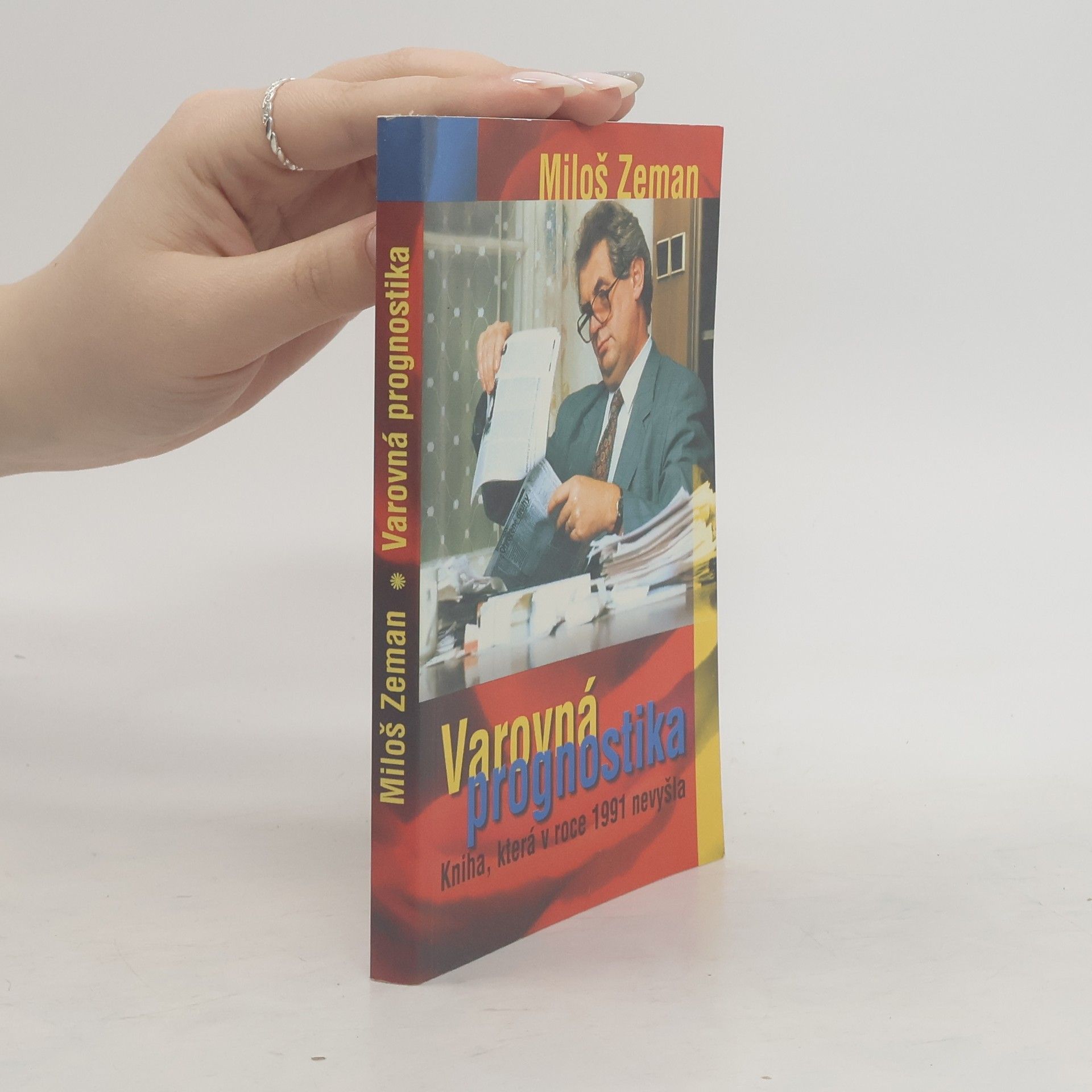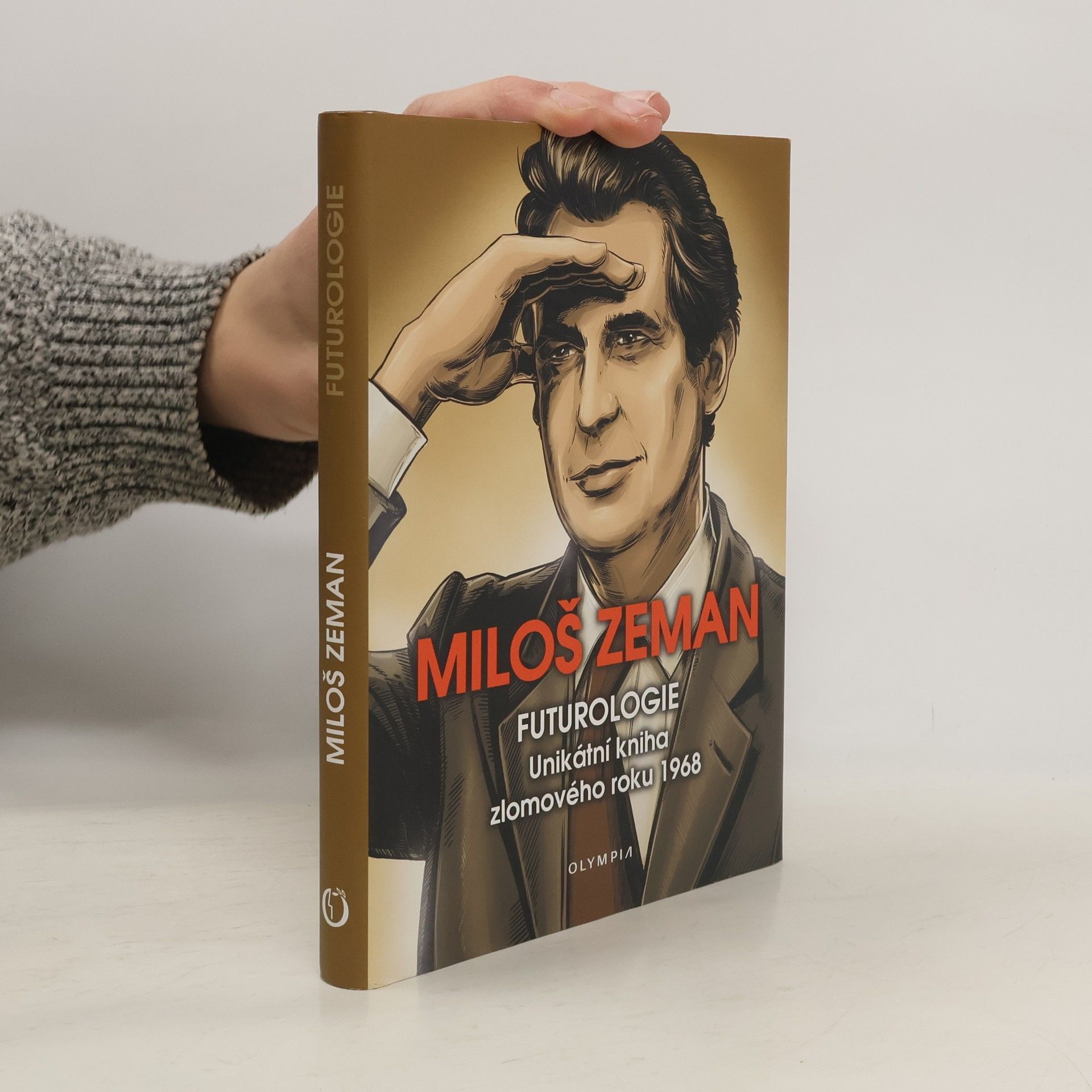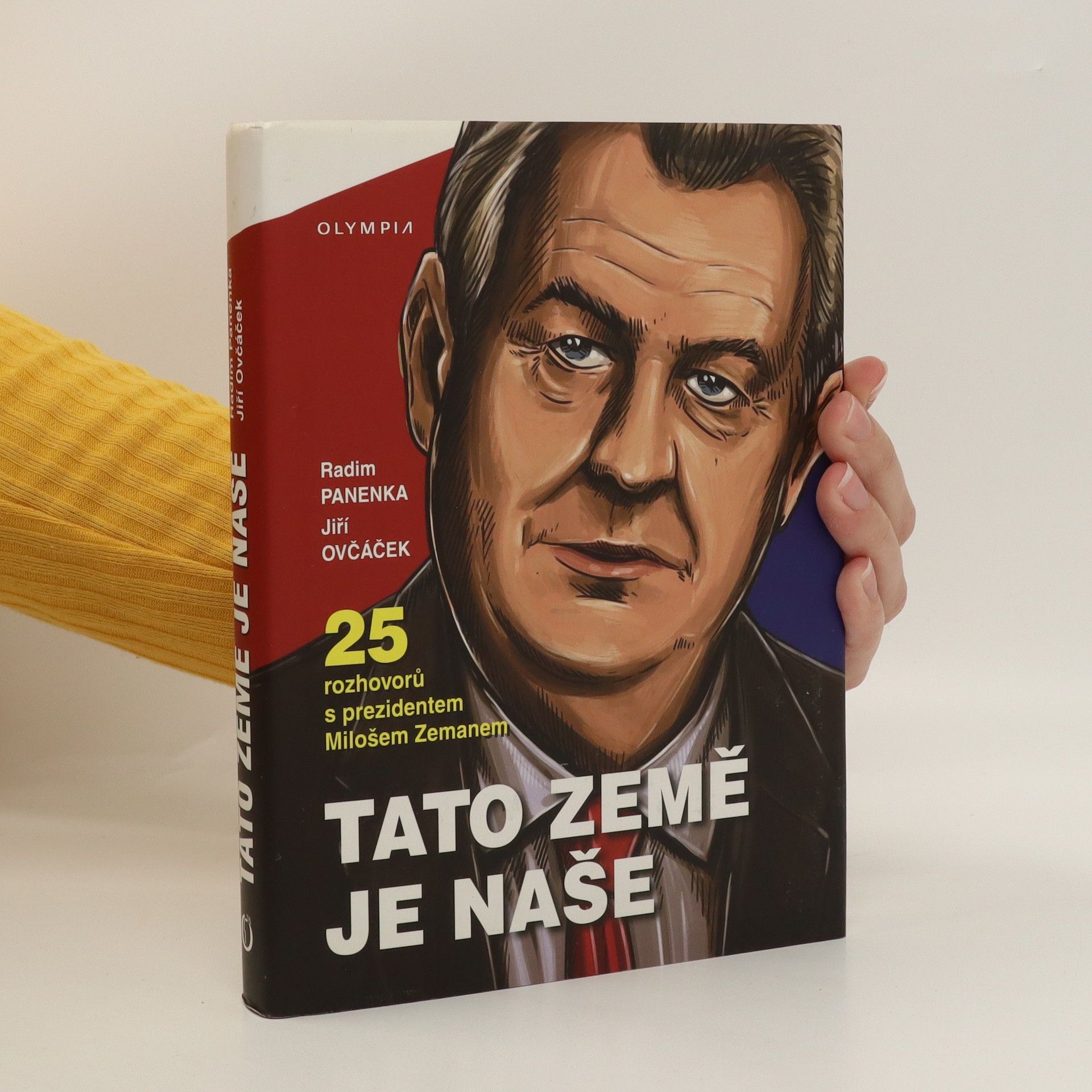Dvaja poprední predstavitelia susediacich slovanských národov, ktoré sa po celé stáročia ovplyvňovali, sa spolu rozprávajú. Navyše ich spája skutočnosť, že ako premiéri súbežne viedli štyri roky (1998-2002) svoje krajiny. Mikuláš Dzurinda i Miloš Zeman hovoria slobodne a s ľahkosťou skúsených politikov a intelektuálov. A o čom Mikuláš a Miloš v knižke hovoria? O svojich cieľoch, víziách, viere či trvalom priateľstve. Hovoria aj o konkrétnostiach ako vstup ich krajín do NATO a Európskej únie, o problémoch s delením československého majetku, o zmenách vo volebnom systéme.
Miloš Zeman Books
This author is recognized for his political and economic insights. His work often explores themes of political strategy and prognostication, as evidenced by his leadership of a major political party and his time in high government office. His writings reflect a deep understanding of power dynamics and societal processes. His experiences in the political arena enrich his perspective on economic and forecasting matters.






Miloš Zeman, bývalý předseda ČSSD a první přímo zvolený prezident České republiky, v roce 1999 prohlásil, že politika je nekončící válka proti hlouposti, přičemž zdůraznil důležitost sebereflexe. Během své politické kariéry se stal nejvýznamnějším „producentem“ bonmotů na české politické scéně, přičemž jeho výroky jsou často vnímány jako izolované a rychle zapomenuté. Publikace shromažďuje známé i méně známé Zemanovy bonmoty, které byly pečlivě vybrány z různých zdrojů, včetně novin, rozhovorů a jednání poslanecké sněmovny. Tyto výroky odrážejí jeho bouřlivou osobnost a vášeň pro politiku, a ukazují, že dokáže s humorem a kritikou nahlížet i na sebe. Humor a nadhled jsou v politice nezbytné, na rozdíl od fanatismu a nenávisti. Zemanovy výroky nám připomínají, že i v těžkých chvílích není beznaděj posledním slovem v politice a že smích může být osvobozující. V české politice je humor rozhodně potřeba.
Futurologie: Unikátní kniha zlomového roku 1968
- 240 pages
- 9 hours of reading
Miloš Zeman vstup do politiky neplánoval, byl do ní vržen okolnostmi. Plánoval si úplně jinou životní dráhu. V ruce držíte unikátní knihu, jejíž hlavní součástí je Futurologický sborník z přelomového roku 1968. Autorem sborníku je právě současný český prezident, tehdy student vysoké školy. Sborník po více než 50 letech ožívá prostřednictvím této publikace, která přináší i zcela nové pohledy Miloše Zemana na vývoj komunistického režimu, ale též množství dosud nepublikovaných fotografií z jeho soukromého archivu.
V roce 1998 požádalo Nakladatelství Horizont, a. s., Miloše Zemana, zda by souhlasil s vydáním knihy Varovná prognostika. Ajeho souhlasem se prognostika dostala z roviny teoretické do roviny praktické. Není to „ideální stav" pro prognostika? Autor v rukopise seznámí čtenáře nejprve obecně s varovnou prognostikou, uvede ho do problematiky, aby potom v poslední kapitole popsal jakýsi společenský proces, který bude v nejbližší budoucnosti probíhat. Rukopis je pak uložen „k ledu", nepublikován (bohužel na úkor tvůrce), a když je popisovaný proces ukončen (oficiálně), rukopis je „vytažen na světlo" a zveřejněn. A čtenář může číst a sám porovnávat. Mimochodem, jak by asi reagoval, kdyby kniha v roce 1991 opravdu vyšla? Můžeme mít cokoliv proti autorovi, můžeme s ním nesouhlasit ve všem, ale nemůžeme mu vyčítat změnu názorů, onu populární schopnost mít v každém čase tu správnou pravdu.
Portrét politika sestává z tradičního novinářského rozhovoru a z ukázek Zemanovy vědecko-publicistické činnosti.
Moje Vysočina - pohledem Miloše Zemana
- 128 pages
- 5 hours of reading
Osobnost současného prezidenta republiky nejspíš nikoho nenechává klidným. Jedni ho zbožňují, a druzí o tom ještě nevědí. Svými vtipnými, ironizujícími, někdy až ostře sarkastickými bonmoty se dokáže nemilosrdně trefit do kohokoli či čehokoli. O to víc překvapí, jak neuvěřitelně poetickými glosami protkal sérií fotografií kraje, kam jezdí pravidelně již pětadvacet let. „Už nejsem na Vysočině náplava, jsem tu doma,“ vyjádřil, kam dnes patří jeho srdce. Z publikace Vysočina pohledem Miloše Zemana je evidentně zřejmé, že je na pravém místě. Vysočina stokrát jinak by mohl znít podtitulek série fotografií Bohumila Eichlera a Karla Beneše. Oběma autorům se podařilo v průběhu posledních necelých tří let zachytit drsnou krásu kraje, který patří k tomu nejpůvabnějšímu, co lze v naší vlasti spatřit. Vykreslit objektivem fotoaparátu působivost okamžiku je svým způsobem umění, ale jen málokomu se poštěstí, aby jeho fotografie doplnil svými postřehy prezident republiky. S chutí si je jistě přečtou i ti, kteří mezi jeho fanoušky nepatří.
Exkluzivní rozhovor, zaznamenaný v dubnu roku 1998 v Poslanecké sněmovně a ve vládní vile Miloše Zemana. Nejdelší a nejobsažnější interview, jaké pan Zeman kdy poskytl. První ucelený portrét postihující takřka všechny stránky života a osobnosti Miloše Zemana.
Jak jsem se mýlil v politice
- 344 pages
- 13 hours of reading
Vzpomínky, pro které autor zvolil poněkud neobvyklou koncepci - vrací se v nich k chybám, omylům a prohraným bitvám své politické kariéry. Těžištěm pamětí je Zemanovo působení v politice po r. 1989. Věnuje se především vnitropolitickým událostem a vnitropolitickému vývoji i ideové profilaci obnovené sociální demokracie. Vysvětluje motivaci svých postojů a rozhodnutí, zejména těch problematických a nesprávných. Kritický je i ke svým spolupracovníkům a politickým protivníkům. Nevyhýbá se ani aférám a skandálům. Končí svým odchodem do politického ústraní a neúspěšnou prezidentskou kandidaturou. Jeho výpověď je přímá, do ničeho se nestylizuje. Je mistrem ironie a sarkasmu. Každopádně především jednou z nejvýraznějších politických osobností polistopadové éry.... celý text
Prezidentský úděl
- 220 pages
- 8 hours of reading
Miloš Zeman rok a půl po odchodu z Hradu sepsal doma v Lánech svoji poslední knihu. Účtuje v ní s nejvyšší ústavní funkcí i řadou politiků, s nimiž se během svého prezidentování setkával. Nešetří takřka nikoho, ani sebe... Poprvé se také otevřeně vyjadřuje k řadě "kauz", které se okolo něj neustále objevují ve veřejném prostoru. V Prezidentském údělu Miloš Zeman jasně popisuje, že byl sice dvakrát zvolený přímo občany, ale jeho kompetence byly vymezeny ústavou, která je šitá na míru parlamentní prezidentské volbě. "Napětí mezi těmito dvěma mantinely vytváří prostor, v jehož rámci se prezident pohybuje. Může se buď přichýlit na stranu modelu poslušného úředníka, kladoucího věnce jako Havlův automat na podpisy, nebo se odvolávat na vyšší legitimitu, danou přímou volbou, a pokoušet se rozšířit své kompetenční pole," vysvětluje bývalý prezident. Knihu doplnil o bohatou fotogalerii a také své zásadní projevy z desetiletého působení na Pražském hradě.



